From waste to wonder – 5 brilliant ways to use grey water in your garden
Considering how much water we go through daily, it pays to know how to repurpose it
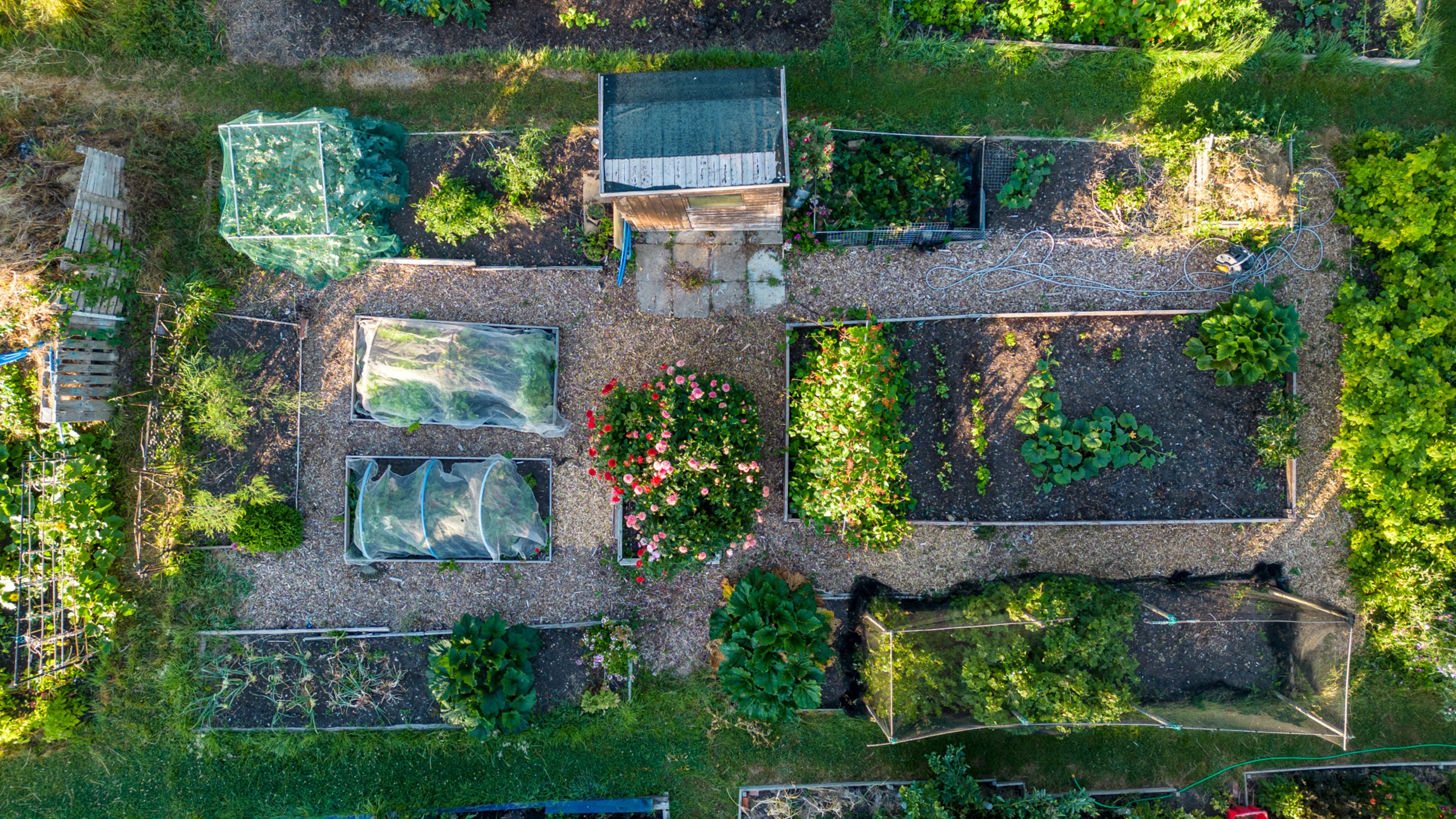

Grey water. What is it and what can it be used for? Despite its slightly unappealing name, grey water is just the clean wastewater leftover from the bath, shower, kitchen sink, other kitchen appliances, and even dehumidifiers.
Grey water isn't dirty by any means, but it's been used, which for most of us warrants for us to just dump it out without a second thought (guilty). However, did you know that grey water actually has many uses for your garden?
We've recently debunked the fact that you can use dehumidifier water for plants, therefore, best believe the same thing can be said for other sources of household water. Instead of dumping out all that perfectly good water, here are some ways you can recycle and repurpose it that not only will the planet thank you for, but your purse will too.
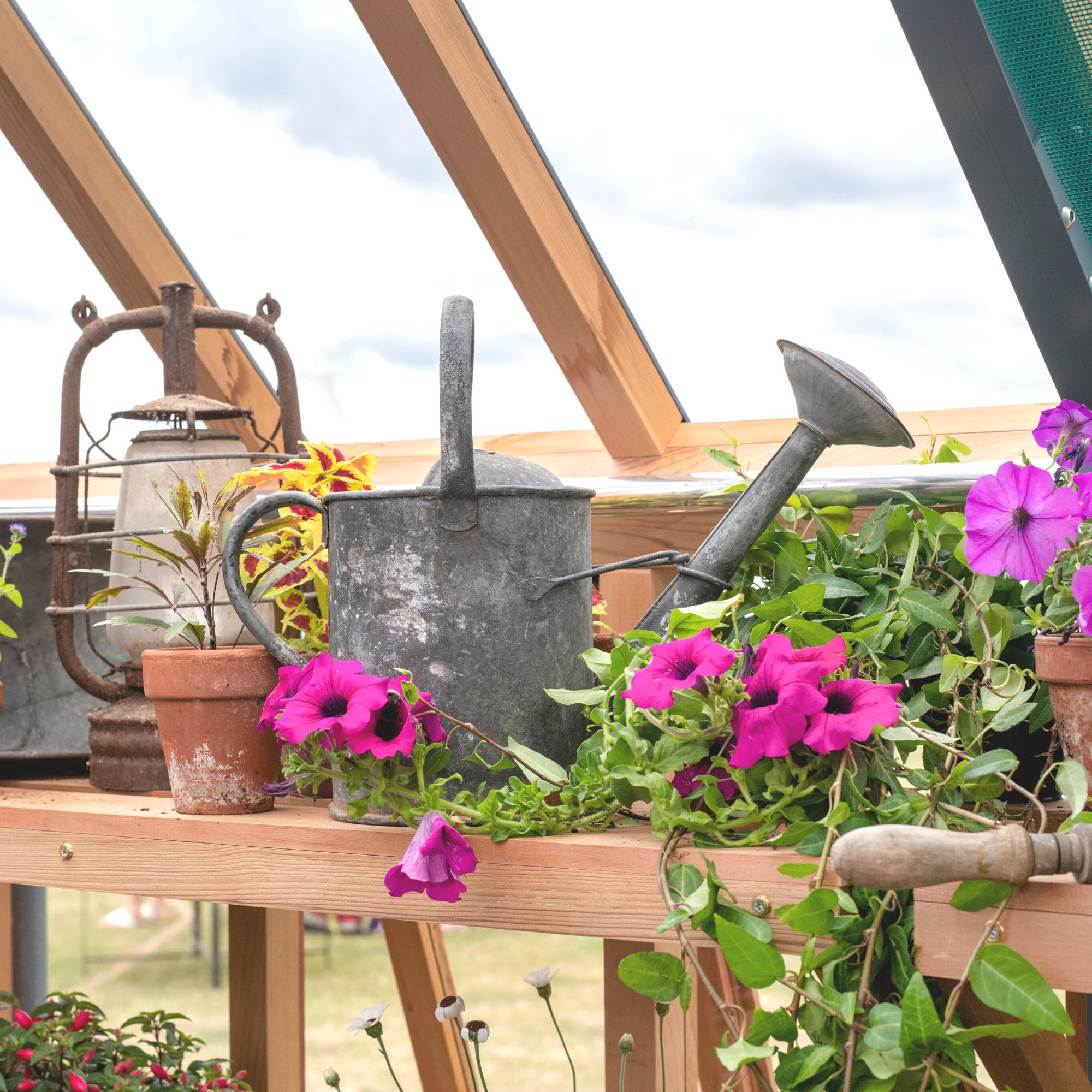
5 ways to use grey water in a garden
'In the UK, an average household uses around 349 litres of water every single day – over four full bathtubs full! So of course it's great to recycle water wherever we can, not just to help the planet but to minimise our household bills too,' says Angharad James, product manager at Phostrogen.
'With that in mind, we're happy to say that you are able to recycle grey water to give your outdoor and indoor plants a much-needed drink – and you can even use the water collected in your dehumidifier!'

With over seven years of experience in the horticultural industry, Angharad is an expert when it comes to getting her fingers green. Whether it’s growing beautiful blooms, getting a picture-perfect lawn or nurturing fruit and veg from seed, Angharad knows how to get the most from the garden – with a little help from British plant fertiliser, Phostrogen.
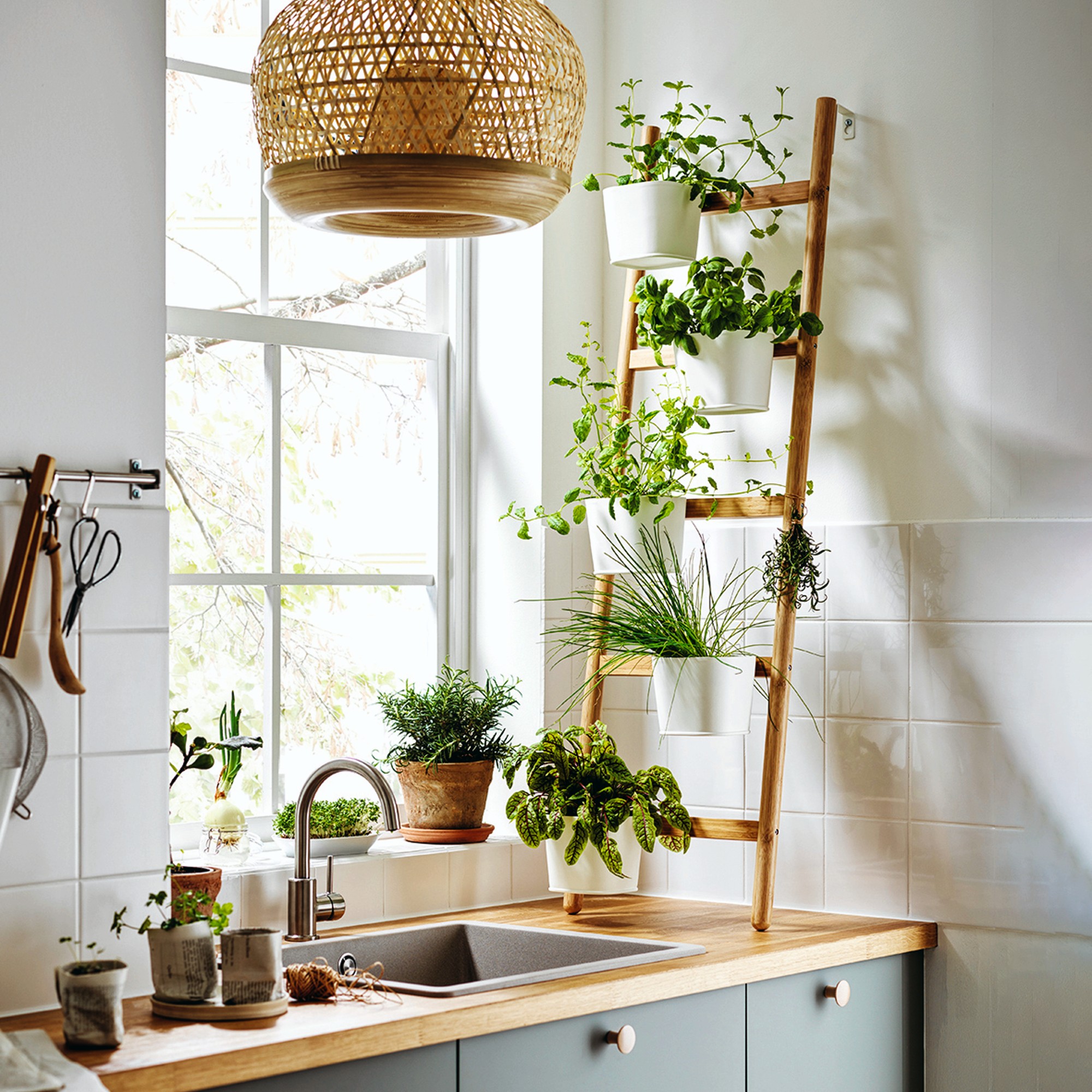
'The repurposing of greywater is actually an excellent way to conserve water and reduce your environmental impact as long as it isn’t contaminated with sewage. While there are many ways to do that, many people opt for re-using it to water their gardens and plants,' says Peter Ivanov, gardening and plant expert at Fantastic Gardeners.

Peter Ivanov is a gardening and plant expert who has been working at Fantastic Gardeners for 8 years. As one of the company's top-performing experts, he now manages over 6 teams of gardeners, delivering stunning landscape results and fostering a deep connection with nature through his work.
'Simply collect any household water that you might otherwise discard, such as from the bath, shower or kitchen sink, and water as you would normally! Grey water is particularly handy for taking care of lawns and trees, as they are typically less sensitive to any contaminants that may be found in it,' adds Daniel Carruthers at Cultivar Greenhouses.
Now you know you can use grey water for your plants, here are some specific ways you can use it in your garden effectively.
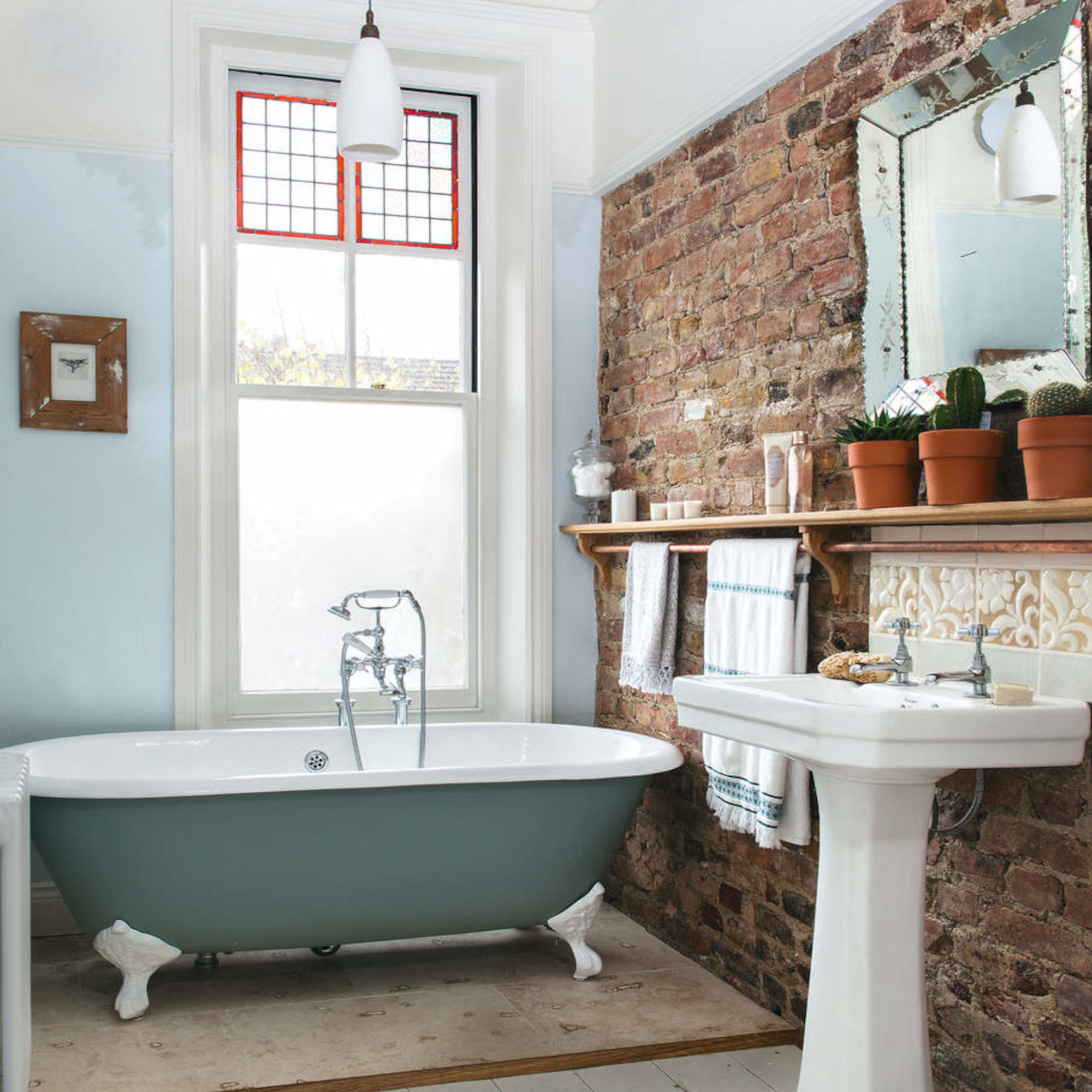
1. Mulching
'Grey water can be used as a beneficial mulch around trees, shrubs, and garden beds. However, if you use it for that pulse, avoid direct contact with the plant foliage to prevent any potential damage to the plants. Apply it to the soil surface, making sure it soaks in gradually,' says Peter Ivanov at Fantastic Gardeners.
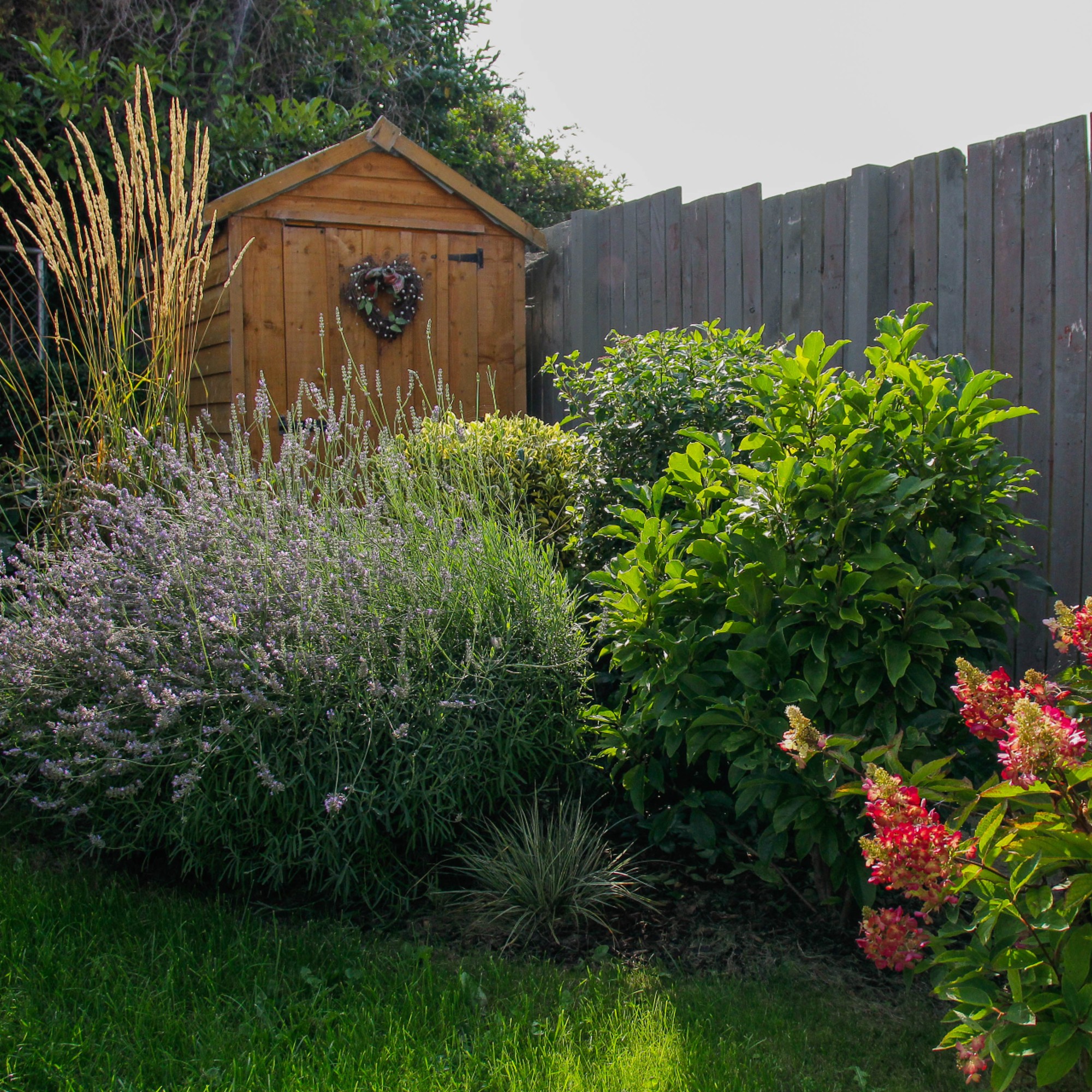
2. Subsurface watering
'A highly efficient method is to use greywater for subsurface watering. To do this, you can install a greywater diverter or a separate greywater irrigation system that distributes it directly to the root zone of plants. This will help minimise water loss through evaporation and enhance water absorption,' says Peter.
Alternatively, if you're after an even lower-effort, easy garden idea, we've tried some other slow watering hacks that only use plastic bottles, if that's more your fancy. Reusing and recycling win again!
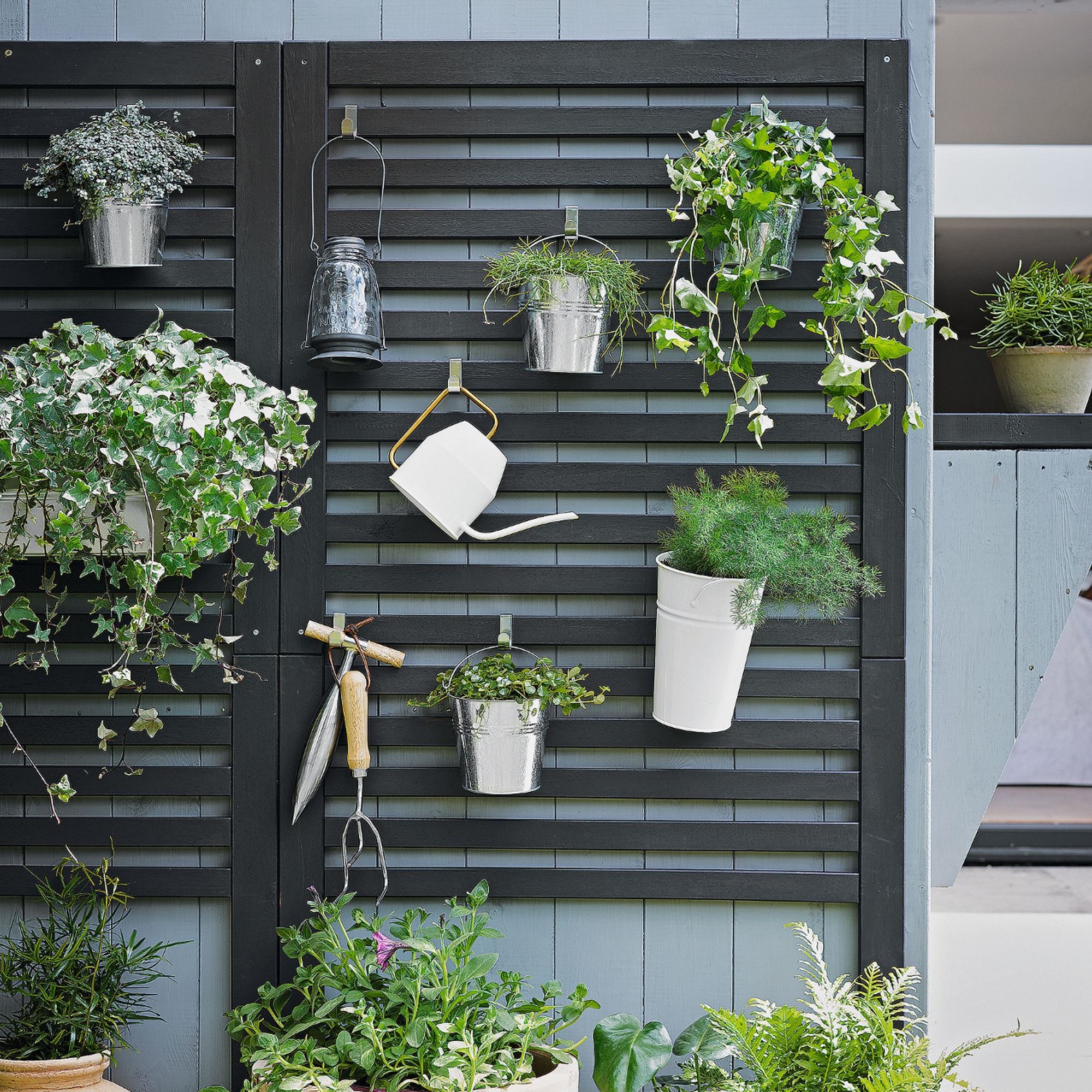
3. Fruit tree watering
If you were looking to grow a lemon tree from seed to bring Sicilian vibes to your garden this summer (a huge nod to the Italian Nonna chic trend, by the way), grey water works especially well for the upkeep of fruit trees.
'Greywater can be particularly useful for watering fruit trees because they often require consistent moisture. Using it can help meet their water needs while reducing drinkable water usage. When you do that, apply the greywater to the soil around the base of the tree and avoid direct contact with the trunk,' advises Peter.
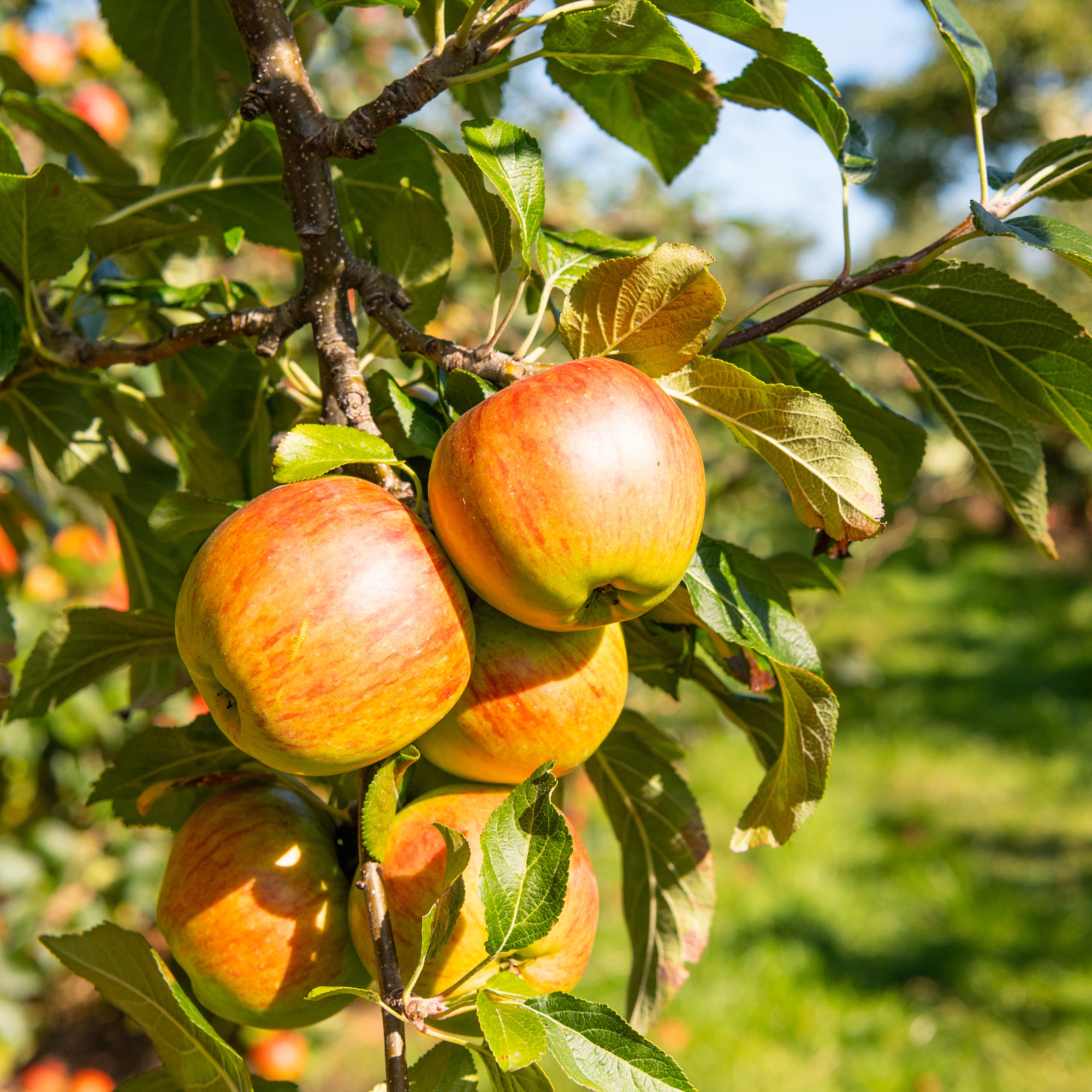
4. Flower and vegetable bed watering
'If you have flower or vegetable beds, greywater can be applied to the soil surface around the base of plants. As with other plants, make sure that the water is directed towards the root zone and doesn't come in contact with the edible parts of the plants,' warns Peter. Furthermore, he warns us to avoid using grey water on any edible crops that are consumed raw or have direct contact with the soil.
Angharad James at Phostrogen adds, 'We would also advise you not to use dehumidified water on any plants you intend to eat (such as any homegrown fruits, vegetables, or herbs) – after all the water is only as clean as your dehumidifier!' The same goes for using the water from your bath, shower, or kitchen sink.
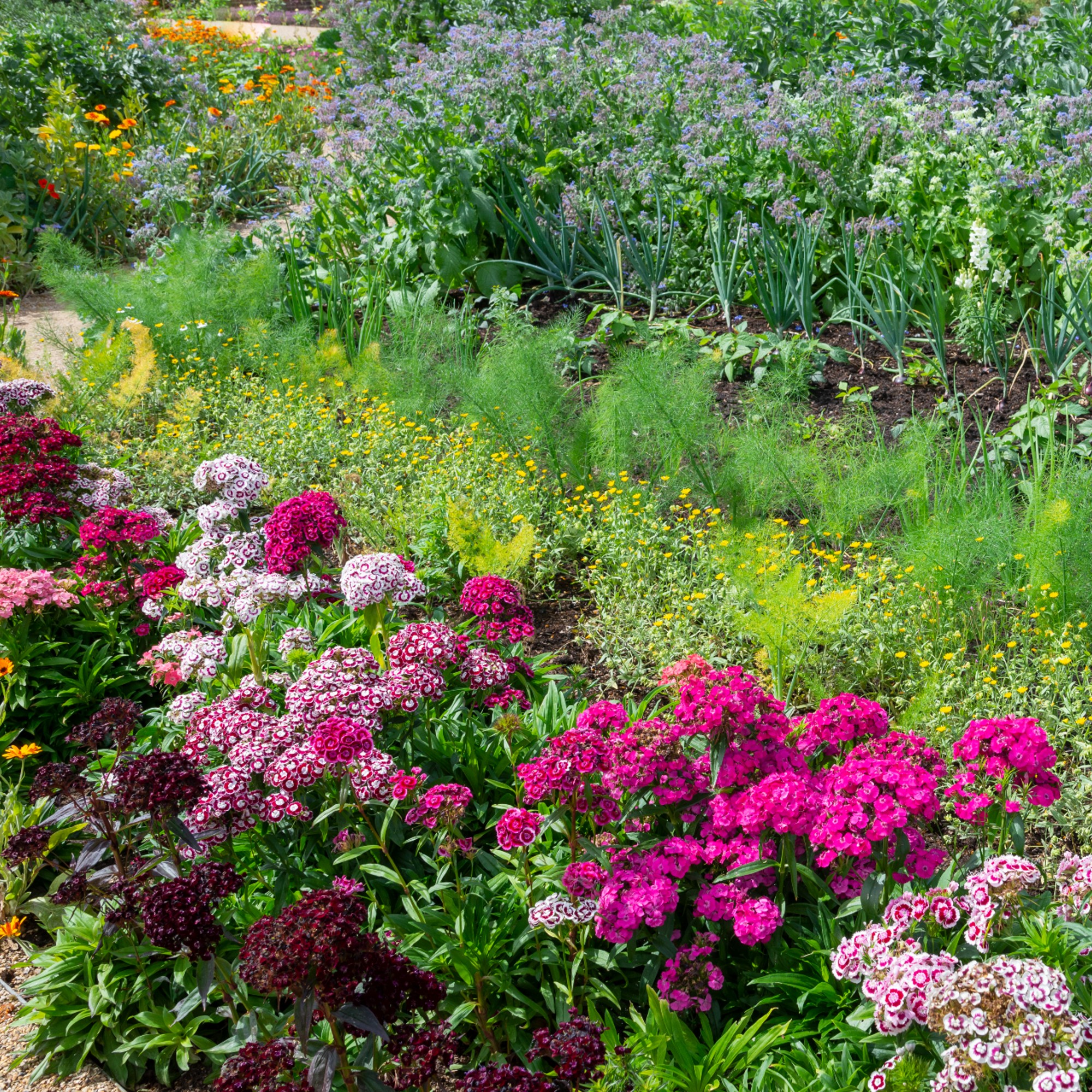
5. Houseplant watering
Last but not least, even if you don't have much of a green thumb, many of us can at least attest to owning a houseplant or two, whether they're plants for the bedroom or as an addition to a living room houseplant idea.
'Generally, most houseplants will be happy enough being watered with grey water from around the house every now and then. Water from the bath is great as it usually only contains soap residues which are relatively harmless to plants, and it would otherwise go down the drain,' says Kate Lindley, product manager at Baby Bio.
'You can also use water collected from the shower, the kitchen sink, and even the paddling pool! Any old glasses of water lying around are also ideal!'
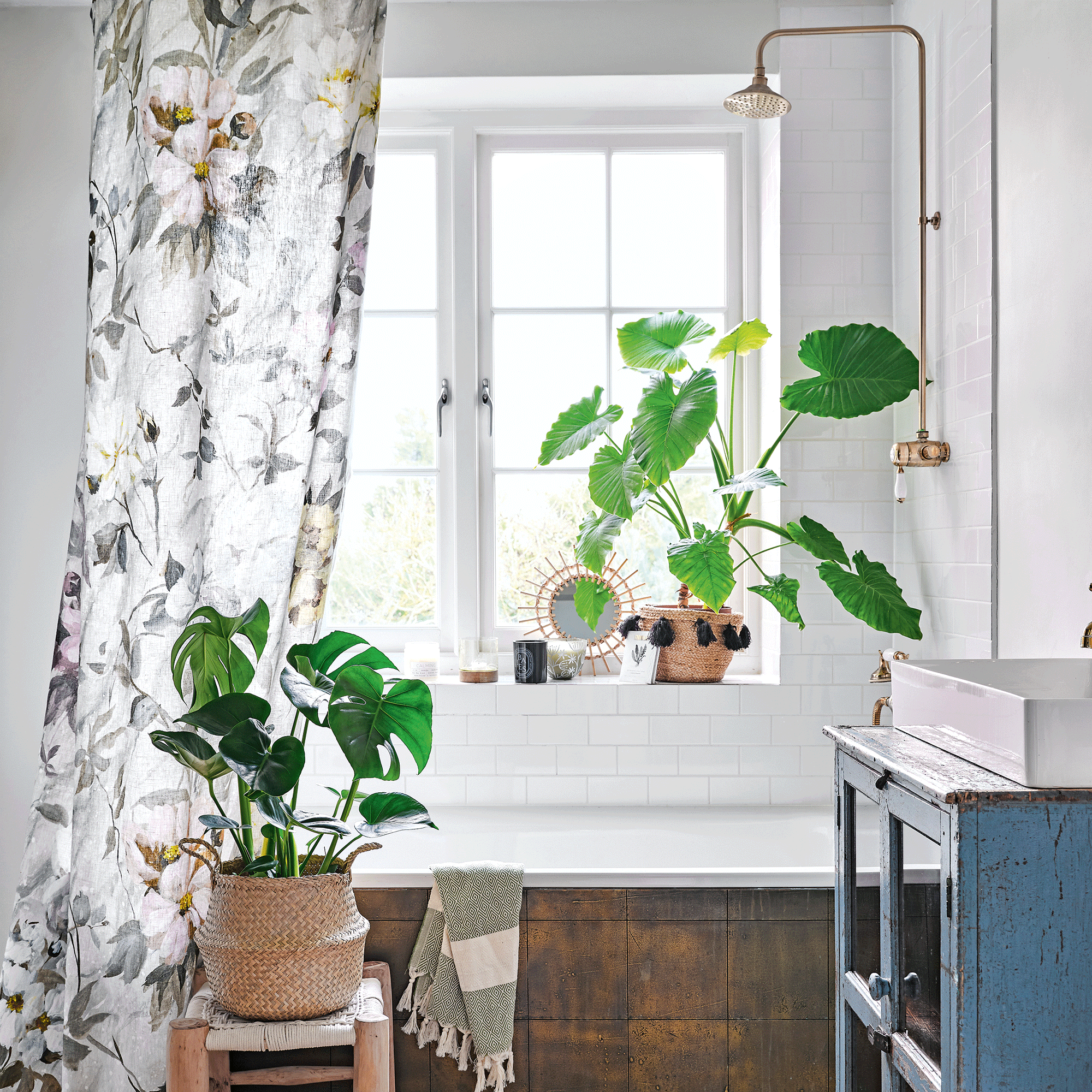
FAQs
Is grey water good for plants?
Generally, yes. However, Kate Lindley at Baby Bio adds, 'As with all aspects of houseplant care, different types of plants have different requirements, so some are more sensitive to grey water than others. Spider Plants, Peace Lilies, and Prayer Plants are known to be a little more sensitive than more hardy houseplants, so they may prefer fresh water.'
Daniel Carruthers at Cultivar Greenhouses adds, 'More tender plants and seedlings are less resistant to contaminants and bacteria, so continue using room temperature tap water until they reach a more mature stage of growth if possible.'
At the end of the day, it's always best to check the preferences of each individual houseplant first.
Does grey water harm plants?
While grey water is generally suitable for most plants, Angharad James at Phostrogen warns against its use for plants already suffering fungal disease.
'If you appear to have one suffering from a fungal disease, we’d advise you not to use recycled dehumidifier water. This is because the fungal spores may be floating around the air and could be collected in dehumidified water, ending up back on the plant when you water it,' she explains.
Get the Ideal Home Newsletter
Sign up to our newsletter for style and decor inspiration, house makeovers, project advice and more.

Jullia was Ideal Home’s Junior Writer from 2022-2024 and the Ideal Home Certified Expert in Training on Vacuums having spent over 60 hours testing different models. She’s always loved all things homes and interiors, graduating with a bachelor’s degree in Architectural Studies from the University of Nottingham where her love for writing blossomed following her internship at ArchDaily. Now focused on home tech and cleaning, Jullia works on writing features and explainers to help people make the most of their home appliance investments, putting the newest launches through their paces. When she isn’t writing, she loves exploring the city, coffee shop hopping, and losing hours to a cosy game or book.
-
 Will a conservatory add value to your home and how can you maximise it?
Will a conservatory add value to your home and how can you maximise it?This is what the pros say
By Amy Reeves
-
 I’ve been looking for a new signature scent for my home and The White Company's new fragrance is the exact summer holiday smell I needed
I’ve been looking for a new signature scent for my home and The White Company's new fragrance is the exact summer holiday smell I neededSantorini smells fresh, summery and sophisticated
By Kezia Reynolds
-
 How to remove algae from garden walls in five steps – and the cleaning product experts rave about for tackling it fast
How to remove algae from garden walls in five steps – and the cleaning product experts rave about for tackling it fastExperts share their top tips for getting garden walls algae-free
By Katie Sims